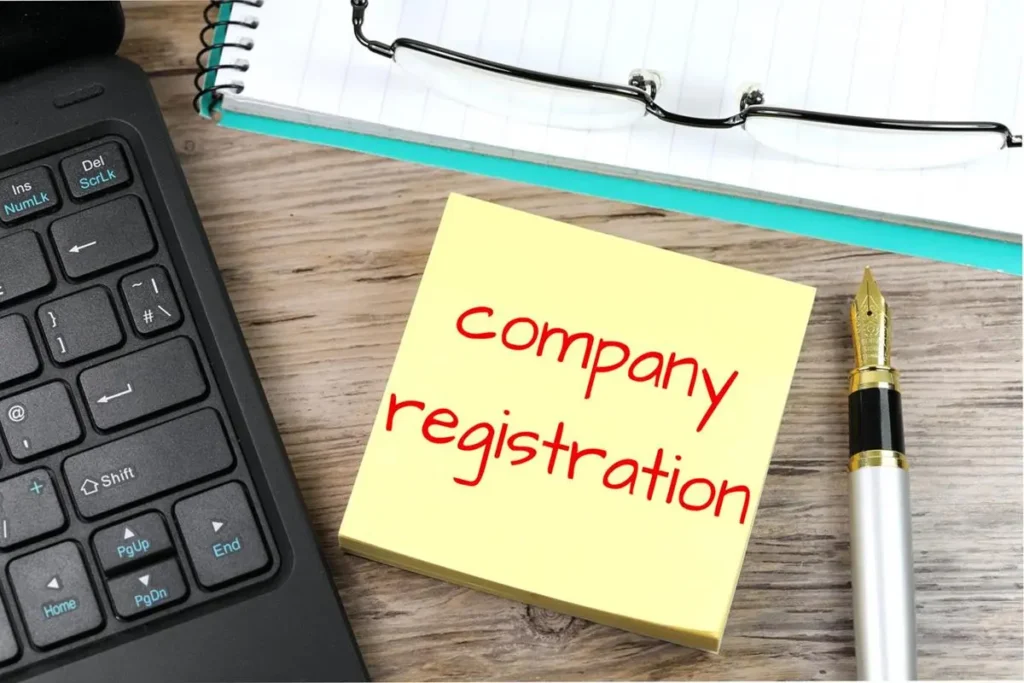In today’s dynamic business environment, organizations often require specialized expertise to navigate various challenges and opportunities. Two such areas where expert guidance is crucial are business registration and sustainability. Business Registration Consultants and Sustainability Consultants each play distinct yet vital roles in helping businesses thrive. This article will explore the functions, responsibilities, and benefits of these roles, highlighting their unique contributions to organizational success.
Business Registration Consultant: An Overview
Role and Responsibilities
A Business Registration Consultant specializes in assisting individuals and companies with the process of formally establishing a business entity. Their primary role is to ensure that businesses comply with legal and regulatory requirements, facilitating a smooth setup process. Key responsibilities include:
Entity Selection: Business Registration Consultants help clients choose the appropriate business structure, such as a sole proprietorship, partnership, corporation, or limited liability company (LLC). They provide guidance on the implications of each structure concerning liability, taxation, and management.
Document Preparation: They assist in preparing and filing the necessary documents for business registration, including articles of incorporation, business licenses, and permits. They ensure that all paperwork is accurate and complete.
Regulatory Compliance: Consultants ensure that the business complies with local, state, and federal regulations. This includes understanding zoning laws, industry-specific requirements, and other legal obligations.
Tax and Financial Setup: They offer advice on setting up tax identification numbers, opening business bank accounts, and understanding financial obligations. They may also provide insights into tax benefits and obligations associated with different business structures.
Ongoing Support: Business Registration Consultants may provide ongoing support to address any legal or regulatory issues that arise after the initial registration, including changes in business status or structure.
Skills and Qualifications
To be effective, Business Registration Consultants should possess:
Legal Knowledge: Understanding of business laws and regulations at various levels of government.
Attention to Detail: Precision in preparing and reviewing documents to ensure compliance and avoid legal issues.
Communication Skills: Ability to clearly explain complex legal and regulatory concepts to clients.
Organizational Skills: Competence in managing multiple tasks and deadlines to facilitate the registration process.
When to Engage a Business Registration Consultant
Organizations or individuals might seek the expertise of a Business Registration Consultant when:
Starting a New Business: They need assistance with the initial registration and setup of a new business entity.
Expanding Operations: They are expanding into new markets or jurisdictions and require guidance on compliance and registration in those areas.
Reorganizing Business Structure: They are restructuring their business and need advice on the legal and regulatory implications of changing their business entity.

Sustainability Consultant: An Overview
Role and Responsibilities
A Sustainability Consultant helps organizations integrate sustainable practices into their operations, strategies, and corporate culture. Their focus is on promoting environmental responsibility, social equity, and economic viability. Key responsibilities include:
Sustainability Assessment: They assess current practices and identify areas where improvements can be made to enhance sustainability. This includes evaluating energy use, waste management, supply chain practices, and overall environmental impact.
Strategy Development: Sustainability Consultants develop and recommend strategies to achieve sustainability goals. This may involve creating action plans for reducing carbon footprints, conserving resources, and enhancing social responsibility.
Compliance and Certification: They assist organizations in complying with environmental regulations and achieving certifications such as LEED (Leadership in Energy and Environmental Design) or ISO 14001. This involves understanding relevant standards and guiding businesses through the certification process.
Training and Education: Consultants provide training to employees and stakeholders on sustainable practices and the importance of sustainability. This helps foster a culture of sustainability within the organization.
Reporting and Communication: They help businesses track and report their sustainability performance. This includes preparing sustainability reports, communicating achievements to stakeholders, and ensuring transparency.
Skills and Qualifications
Sustainability Consultants should have:
Environmental Knowledge: Understanding of environmental issues, regulations, and sustainability practices.
Analytical Skills: Ability to assess and analyze environmental data and performance metrics.
Project Management: Skills in managing sustainability projects, from planning to execution and evaluation.
Communication Skills: Competence in conveying sustainability concepts and benefits to various stakeholders effectively.
When to Engage a Sustainability Consultant
Organizations might engage a Sustainability Consultant when:
Developing Sustainability Strategies: They want to create or improve their sustainability initiatives and need expert guidance on best practices.
Compliance Requirements: They need to ensure compliance with environmental regulations or seek certifications that require external expertise.
Enhancing Brand Reputation: They aim to enhance their corporate social responsibility and improve their reputation by adopting sustainable practices.
Comparing Business Registration Consultants and Sustainability Consultants
While both Business Registration Consultants and Sustainability Consultants provide valuable services, their focus areas and contributions differ significantly:
Focus Areas: Business Registration Consultants focus on legal and administrative aspects of starting and structuring a business, whereas Sustainability Consultants focus on integrating environmentally and socially responsible practices into business operations.
Objectives: The primary goal of a Business Registration Consultant is to ensure legal compliance and facilitate business setup, while a Sustainability Consultant aims to help organizations reduce their environmental impact and enhance their social responsibility.
Expertise: Business Registration Consultants require expertise in legal and regulatory matters, while Sustainability Consultants need a deep understanding of environmental and sustainability issues.
Collaboration Between the Two Roles
In some scenarios, the expertise of both types of consultants may be beneficial:
New Ventures with Sustainability Goals: A new business aiming to incorporate sustainability from the outset might benefit from both Business Registration and Sustainability Consultants to ensure compliance and integrate sustainable practices from the beginning.
Expansion and Sustainability: An expanding business may need to navigate new legal requirements while also enhancing its sustainability efforts to align with broader corporate values and market expectations.
Conclusion
Business Registration Consultants and Sustainability Consultants each play essential roles in helping organizations achieve their goals. Business Registration Consultants focus on ensuring legal compliance and facilitating the smooth establishment of business entities, while Sustainability Consultants work to integrate sustainable practices and enhance environmental and social responsibility. Understanding the distinct roles and how they complement each other can help businesses make informed decisions, address challenges effectively, and contribute to long-term success and sustainability. Engaging the right consultant for your specific needs can provide valuable expertise and support, driving both legal compliance and sustainable growth.




